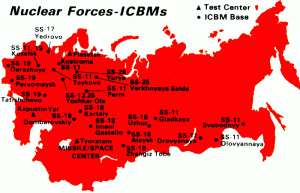
Senators Schumer and McConnell. Breitbart: “Schumer, McConnell Rammed Through Vote on $300 Billion, 652-Page Budget in 18 Hours” (AP photo – J. Scott Applewhite)
The Washington Times, as they say, nails it: “Budget deal shows high cost of bipartisanship. Few things produce bipartisanship more than spending other people’s money.” The newspaper continues:
This week’s deal to add $320 billion to the deficit over the next 20 months and set the stage for $1.8 trillion more in deficits over the next decade has won strong reviews from those who want to see Democrats and Republicans get along better. But those who keep their eye on the bottom line say good feelings among senators is bad news for taxpayers, who will be footing the bill for decades….The heart of the deal is a bargain: Republicans get a massive boost in defense spending, while Democrats got a big hike in domestic spending. Add in some 50 additional tax breaks, another extension of the popular Children’s Health Insurance Program and up to $90 billion in emergency disaster relief spending, and leaders hoped to entice enough lawmakers with enough goodies.
The blame for this bad bargain seems to rest on Senator McConnell, whose refusal to let Republicans overturn the Senate’s 60-vote rule in favor of passing bills by a simple majority created the need to bribe Democrats with unnecessary domestic spending. The Democratic press is now blaming the Republicans for deficits the Democrats themselves aggravated with their domestic add-ons. The increased budgeting for the military, by contrast, was an urgent necessity in the face of increased Chinese and Russian military threats on the one hand and a budget-strapped US military on the other.
In Senator McConnell’s defense, it’s possible he couldn’t get a Republican majority and therefore needed to buy the Democratic votes to pass the Defense increases. But then again, why can’t the Senator exert the kind of control over his legislative party that Nancy Pelosi and Chuck Schumer exert over theirs?
The rest of the right-of-center press is equally unhappy with the budget deal: Breitbart, National Review, Cato, and Wall Street Journal.

Russian ICBM sites
For the cash-starved US military, on the other hand, the two-year McConnell-Schumer shepherded bill is “A Budget the Likes of Which the Pentagon Has Never Seen.” The Missile Defense Agency will get $12.3 bn. for “as many as 28 additional Ground-Based Interceptors.” But there’s no word of investment in the space-based missile defense system needed for strategic defense to defend against a Russian or Chinese attack rather than North Korea.
Economic news
Most commentators realize that the stock market correction was an event waiting to happen, given the anticipated end of the Federal Reserve’s suppressed interest rate policy, a.k.a. financial repression. Although debt is a problem in the wake of the low interest rates that encouraged speculation, the U.S. and world economy are otherwise healthy and should survey the pullback.
One potentially negative development, however, is that the House Financial Services Committee voted to overturn a beneficial 2014 regulation requiring that money market funds allow their share prices to float, rather than maintain a stable, but sometimes fictitious, $1 value. Overturning the regulation makes a run on the funds and subsequent government bailout not only possible but likely, as happened during the financial crisis in 2008.
Meanwhile the US, which used to be heavily dependent on Mideast oil, is now exporting very light crude oil to that very region.
Trump-Russia collusion story backfiring against Democrats and their media
According to a poll conducted by Investor’s Business Daily, “Americans overwhelmingly believe the Obama administration “improperly surveilled” Donald Trump’s presidential campaign, and a majority say they would like to see a special prosecutor appointed to look into possible misconduct by the FBI and Department of Justice in spying on Trump…” A Rasmussen poll points in the same direction regarding the widespread credibiity of the House Intelligence Committee findings, as reported in the Nunes memo.

Hugh Hewitt
Hugh Hewitt, an attorney who once himself vetted FISA court requests, details the gross improprieties of the FBI and Justice Department in submitting FISA requests to spy on American citizen Carter Page, who was briefly on the Trump campaign committee. Hewitt also advocates a special counsel to investigate the flagrant Justice / FBI violations of required legal procedure.
Former Federal attorney Andrew McCarthy notes the importance of the Judiciary Committee’s Grassley-Graham memo in dissecting the same flaws in the Carter Page FISA court applications, in corroborating the Nunes memo, and in severely criticizing the major media blackout of reporting on the Grassley-Graham memo.
hat tips: Eaglebeak and Nicomachus
Click here to go to the previous Founders Broadsheet (“Weak dollar, trade protectionism the two big things that threaten the improving US economy”)

Leave a Reply